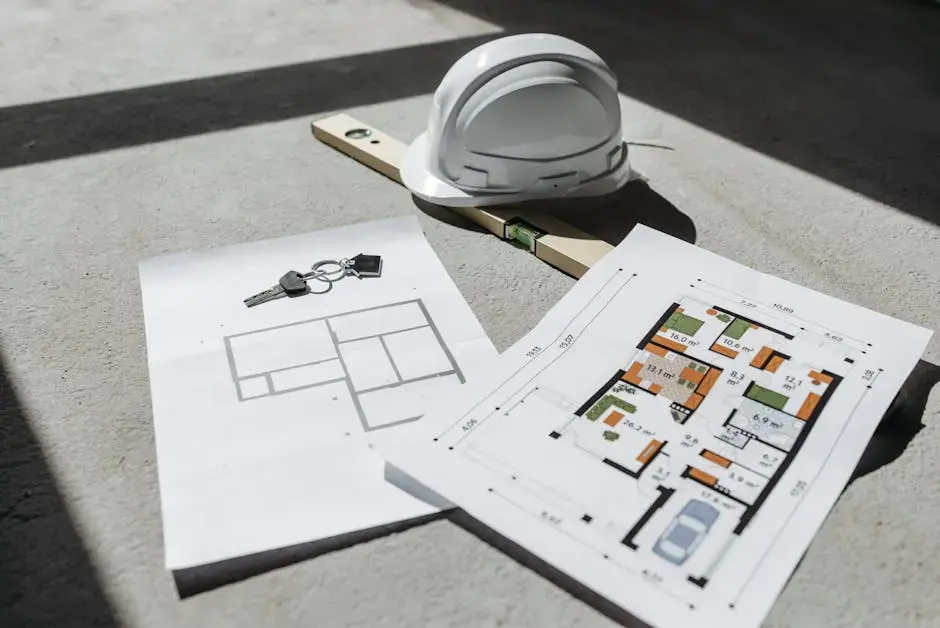8 Essential Tips for a Successful Home Addition in Omaha
- Gottsch Construction
- Oct 18, 2024
- 4 min read
Planning a home addition can be an exciting yet daunting task. Whether you're looking to expand your living space, enhance your property value, or create your dream custom home in Omaha, it's crucial to approach this project with careful consideration. In this guide, we’ll walk you through essential tips that will help ensure your home addition goes smoothly and successfully.

1. Setting a Realistic Budget for Your Project
Before you dive into your home addition journey, setting a realistic budget is the foundation upon which all your planning rests. A well-defined budget can help you control costs, prioritize the necessary features in your custom homes Omaha project, and even prevent potential financial stress down the line. Consider both direct costs, such as materials and labor, and indirect expenses, such as permits and fixtures, to paint a complete picture of what you might need.
Also, keep in mind that unexpected costs usually arise during construction. To mitigate this, it's wise to reserve about 10-20% of your total budget for contingencies. This will not only cushion any unforeseen expenses but will also give you peace of mind knowing you're well-prepared for any surprises that may pop up during the build.
2. Understanding Local Building Codes and Permits
No home addition can proceed without a solid understanding of local building codes and the necessary permits. Building codes regulate everything from structural safety to zoning restrictions, making it essential to familiarize yourself with them before commencing your project. Each city, including Omaha, has unique regulations, so take the time to research what applies to your desired area.
One smart strategy is to consult with your architect or contractor about these codes early in the design process. They can help you navigate through the intricate layers of regulations, ensuring that your custom homes Omaha addition not only meets legal standards but also aligns with your creative vision. Failure to comply could lead to costly delays or adjustments in the future.
3. Choosing the Right Time to Start Your Addition
Timing can be everything when it comes to a home addition. Ideally, you'll want to start your project during seasons that are conducive to construction—spring and early summer are often the best choices. During these months, weather conditions are typically stable, which can significantly reduce delays and ensure smoother execution.
However, bear in mind that scheduling your project during peak construction season may affect availability and cost. If possible, consider the off-season when contractors might be more eager to take on projects and negotiate rates. Finding the ideal balance between securing top-notch workers and maintaining cost-effectiveness can set the stage for your success.
4. Hiring the Best Contractors for the Job
Choosing the right contractors to bring your home addition vision to life can make all the difference in achieving your goals. Start by seeking recommendations from friends, family, or neighbors who have undertaken similar projects. Research contractors’ backgrounds, checking online reviews and portfolios to gauge their past work and customer satisfaction.
Once you have a shortlist, conduct face-to-face interviews to clarify expectations. Ask about their experience with home additions, particularly in custom homes Omaha, and gauge their communication styles. A contractor's ability to listen and adapt to your input can greatly impact the overall collaboration and outcome of your project.
5. Designing an Addition That Flows with Your Home
The design of your addition should feel like a seamless extension of your home. This means paying careful attention to architectural styles, materials, and layout. Take inspiration from the existing features of your home, such as window styles, rooflines, and exterior finishes, to create a harmonious connection between old and new.
Incorporating aspects like color schemes and landscaping can also enhance the addition's integration into your property's overall aesthetic. Don't hesitate to consult with designers or architects who specialize in custom homes Omaha; they can offer insights and professional advice to ensure your vision is cohesive and well-executed.
6. Incorporating Energy-Efficient Features
In today's environmentally conscious world, energy efficiency is a crucial consideration when designing a home addition. Not only does it benefit the planet, but it can also significantly lower your utility bills in the long run. As you plan your new space, think about incorporating energy-efficient windows, insulation, and heating or cooling systems.
You might also explore renewable energy options, such as solar panels, which can enhance the sustainability of your custom homes Omaha project. Incorporating these features may seem costly upfront, but the long-term savings and increased property value they bring can make them worthwhile investments.
7. Planning for Unexpected Challenges
Even with meticulous planning, challenges can still arise during a home addition. From unexpected structural issues to delays caused by inclement weather, being prepared for hiccups is essential. It’s advisable to approach this project with a mindset of flexibility, allowing you to navigate these challenges without feeling overwhelmed.
Expect the unexpected means staying in close communication with your contractors. Regular check-ins can not only keep the project on track but also foster an environment of transparency where problems can be addressed promptly. Integrating this proactive mindset can transform potential setbacks into mere speed bumps on your path to home improvement.
8. Ensuring a Smooth Communication Process
Effective communication is the backbone of a successful home addition project. It is essential to articulate your vision clearly to avoid misunderstandings and ensure all involved parties are on the same page. Utilize various tools to facilitate this process, such as emails for important updates and project management apps for real-time collaboration.
Regular and open conversations with your contractors can help identify and resolve issues before they escalate. It also fosters a collaborative atmosphere. When everyone feels heard and understood, the project stands a better chance of achieving your expectations and timeline. Your proactive approach to communication will undoubtedly pay off in the long run.






Comments